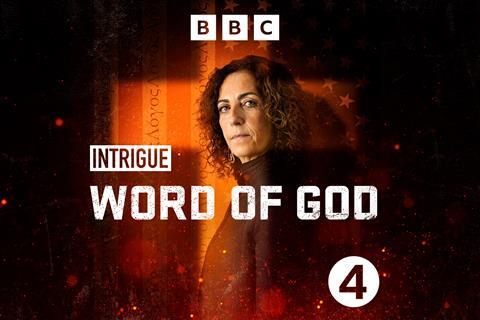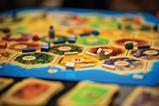A new BBC podcast catalogues the “turbulent rise” of Washington DC’s Museum of the Bible “from looted treasures to uncovering fakes”. Christian leader and archaeologist Chris Sinkinson previews the first two episodes

Archaeology is a serious science but often overlaps with the world of treasure hunting and sometimes even criminal underworlds.
A new BBC Podcast series, ‘Intrigue: Word of God’, has found a rich seam of material to excavate, in the form of Washington D.C.’s Museum of the Bible.
Having previewed the first two episodes, I can report it is well produced and offers some timely reminders of the importance of scrutiny in the evangelical world.
That’s because the Museum of the Bible has had to admit, among other revelations, that five of its most valuable artefacts – once thought to be part of the historic Dead Sea Scrolls – were fake.
Telling the story
There is no shortage of genuine archaeological artefacts that relate to biblical history that can be seen in museums around the world. The British Museum in London, for example, is home to many of these. So how did the Museum of the Bible, which opened in 2017 and was the beneficiary of evangelical financial backing from the owners of American retailers, Hobby Lobby, end up getting it so wrong?
In the podcast, Ben Lewis investigates the evangelical interests of the Green family, who founded Hobby Lobby, and the agenda of the Museum of the Bible. The BBC press release says the museum has had a “turbulent rise: from looted treasures to uncovering fakes and a war over biblical meaning.” They say the museum is part of “a growing movement” that “seeks to restore the nation’s foundations – with the Bible as their blueprint.”
At the heart of the story, as Lewis tells it, is a wealth unknown to most museums. The Hobby Lobby investment enabled acquisition of a stunning range of biblical period artefacts. 40,000 items were obtained in three years including rare manuscripts, early Bibles, Dead Sea Scroll fragments and inscribed cuneiform tablets. We now know that some of these were not what they seemed.
The podcast follows the story of Roberta Mazza, an expert in ancient papyri. Mazza was alerted to the rise of illicit trade in these artefacts as they appeared on ebay in the early 2000s. This was during the horrific years of lawlessness in Iraq under the ISIS regime, when objects were regularly looted and appeared for sale on online platforms.
There’s no doubt that the sudden injection of $500m to build and fill the Museum of the Bible helped fuel a burst in illicit trade. But while Intrigue: Word of God majors on these serious mistakes made, it is worth putting the revelations into a wider context.
Firstly, museums in general have a difficult history. Many great institutions are tied to an imperial past. Wherever they have had power or wealth, nations have been able to collect significant objects from their spheres of influence. The world has changed, today there is less enthusiasm for what is seen as appropriating other people’s cultures. Many nations now have strict laws governing the buying and selling of archaeological finds – aimed at keeping artefacts in the land of their discovery. The pressure is on for museums to return significant finds to their country of origin – the Greek campaign to return the “Parthenon Marbles” from the British Museum has been so successful that we no longer call them the “Elgin Marbles.”
But laws do still permit buying and selling of artefacts under certain conditions. A key issue is that of “provenance” – where the item was found and who has entitlement to it. Auction houses investigate carefully and even online platforms, like ebay, have introduced new regulations to clamp down on an illicit trade.
In the mix are also fakes and forgeries. A recent copy of what was claimed to be a fragment of the so-called Gospel of Mary fooled even a leading scholar at Harvard University but turned out to be a modern fake. The forgers are very good at what they do!
Integrity
So how does the Museum of the Bible fare in the light of this wider cultural scrutiny? Their Dead Sea Scroll collection turned out to be fake. 5500 cuneiform tablets purchased from Iraq were found to have been looted. In 2019 a collection of their papyrus fragments of biblical texts were shown to have been illegally sold by an Oxford University Professor. The BBC podcast reveals a catalogue of errors and Steve Green, President of Hobby Lobby has said, “the criticism resulting from my mistakes are justified.”
The BBC would be right to say that the Museum of the Bible has been a poor witness for the Christian faith in this regard. The podcast is well worth listening to, extremely interesting, and offering salutary lessons. But let’s not forget the Museum of the Bible has made reparations. It has paid fines, returned stolen artefacts and removed fakes from display. It has done more than some national institutions. One particular biblical manuscript, legitimately bought from Christie’s auction house in 2011, was found to have been stolen during World War I and has since been returned to the Greek monastery from which it had been taken. The Museum of the Bible has made mistakes but it has also demonstrated an integrity that I trust the BBC will draw attention to in future episodes.
‘Intrigue: Word of God’ from BBC Radio 4 is available now wherever you get your podcasts from





































No comments yet